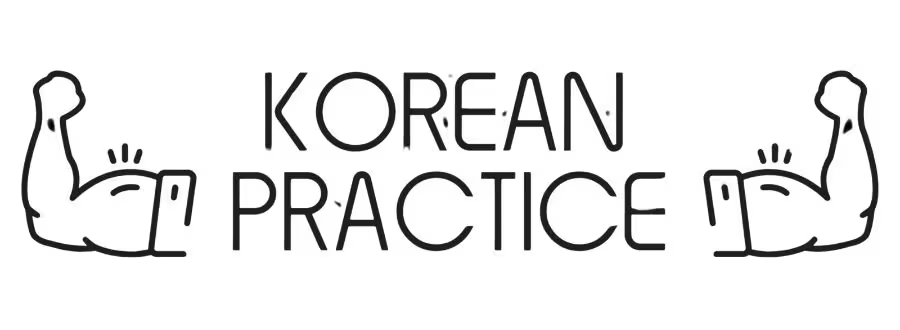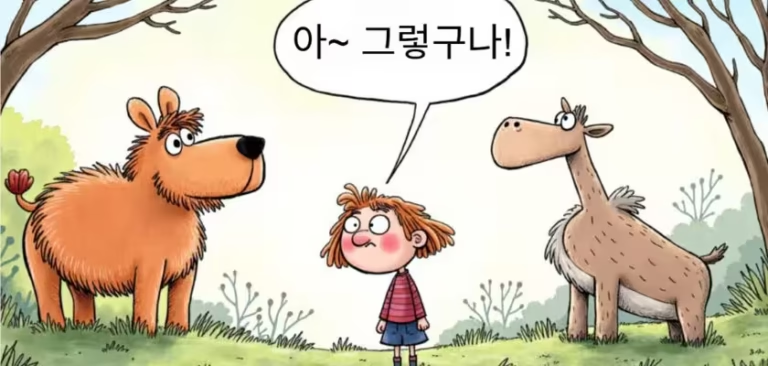Introduction
In this article, we’ll explore essential Korean phrases for friendship, including how to say “Can we be friends in Korean,” delve into cultural aspects related to friendships in Korea, and provide tips and tricks for making Korean friends. So, if you’ve ever wondered about the phrase “Can we be friends in Korean” and want to know more about forming connections in Korean culture, keep reading.
1. Friend-related words in Korean
친구 (chin-gu) – friend
그는 나의 가장 좋은 친구입니다. (Geuneun nar gajang joeun chinguimnida.) – He is my best friend.
그는 나의 가장 좋은 친구입니다.
그는 (geu-neun) 나의 (na-e) 가장 (ga-jang) 좋은 (jo-eun) 친구입니다 (chin-gu-im-ni-da).
그 (he) 는 (my topic is him) 나의 (my) 가장 (most) 좋은 (good) 친구 (friend) 입니다 (is; I’m telling you in a polite and formal way).
He is my best friend.
Lit. He is my most good friend.

동료 (dong-ryo) – colleague
저의 동료들은 항상 저를 도와줘요. (Jeoe dongryodeureun hangsang jeoreul dowajwoyo.) – My colleagues always help me.
저의 동료들은 항상 저를 도와줘요.
저의 (jeo-e) 동료들은 (dong-ryo-deu-reun) 항상 (hang-sang) 저를 (jeo-reul) 도와줘요 (do-wa-jwo-yo).
저의 (my; in a humble way) 동료 (colleague) 들 (s) 은 (my topic is my colleagues) 항상 (always) 저를 (me; in a humble way) 도와주 (to help) 어요 (I’m telling you polite and friendly). * 도와주 + 어요 = 도와줘요
My colleagues always help me.
지인 (jiin) – acquaintance
이 행사는 지인들과 함께 즐길 수 있는 좋은 기회예요. (i haengsaneun jiindeulgwa hamgge jeulgil su inneun joeun gihoeyeyo.) – This event is a great opportunity to enjoy with acquaintances.
이 행사는 지인들과 함께 즐길 수 있는 좋은 기회예요.
이 (i) 행사는 (haeng-sa-neun) 지인들과 (ji-in-deul-gwa) 함께 (ham-gge) 즐길 (jeul-gil) 수 (su) 있는 (in-neun) 좋은 (jo-eun) 기회예요 (gi-hoe-ye-yo).
이 (this) 행사 (event) 는 (my topic is this event) 지인 (acquaintance) 들 (s) 과 (with) 함께 (together) 즐기 (to enjoy) ㄹ 수 있 (can) 는 (that~) 좋은 (good) 기회 (opportunity) 예요 (is; I’m telling you polite and friendly).
This event is a great opportunity to enjoy with acquaintances.
Lit. This event is good opportunity that (we) can enjoy together with acquaintances.
동반자 (dongbanja) – companion
그 여행에서 나는 최고의 동반자를 만났어. (Geu yeohaengeseo naneun choegoe dongbanjareul mannasseo.) – I met the best companion on that trip.
그 여행에서 나는 최고의 동반자를 만났어.
그 (geu) 여행에서 (yeo-haeng-e-seo) 나는 (na-neun) 최고의 (choe-go-e) 동반자를 (dong-ban-ja-reul) 만났어 (man-nat-seeo).
그 (that) 여행 (trip) 에서 (on) 나 (I) 는 (my topic is myself) 최고 (best) 의 (of) 동반자 (companion) 를 (my object is the best companion) 만나 (to meet) ㅆ (past tense) 어 (I’m telling you casually). * 만나 + ㅆ = 만났
I met the best companion on that trip.
Lit. I met best of companion on that trip.
펜팔 (penpal) – pen pal
저는 전 세계에 펜팔을 가지고 있어요. (Jeoneun jeon segyee penpareul gajigo isseoyo.) – I have pen pals from all over the world.
저는 전 세계에 펜팔을 가지고 있어요.
저는 (jeo-neun) 전 (jeon) 세계에 (se-gye-e) 펜팔을 (pen-pa-reul) 가지고 (ga-ji-go) 있어요 (it-sseo-yo).
저 (I; in a humble way) 는 (my topic is myself) 전 (all over) 세계 (world) 에 (in) 펜팔 (pen pal) 을 (my object is pen pal) 가지고 있 (to have) 어요 (I’m telling you polite and friendly).
I have pen pals from all over the world.
Lit. I have pen pal in all over world.

Image by drobotdean on Freepik
2. Basic Korean Phrases for Friendship
In order to connect with Koreans on a deeper level and potentially ask “Can We Be Friends in Korean,” it’s helpful to learn some basic phrases. Here are a few essential phrases you can use to express your desire for friendship:
친구가 될 수 있을까요? (chin-gu-ga doel-su iss-eul-kka-yo?) – Can we be friends?
친구가 될 수 있을까요?
친구가 (chin-gu-ga) 될 (doel) 수 (su) 있을까요 (it-sseul-gga-yo)?
친구 (friend) 가 (my subject is friend) 되 (to become) ㄹ 수 있 (can) 을까요 (I wonder)? * 되 + ㄹ = 될
Can we be friends?
Lit. Can (we) become friend?
함께 친구가 되고 싶어요. (hamgge-chinguga-doego-sipeoyo) – I want to be friends together.
함께 친구가 되고 싶어요.
함께 (ham-gge) 친구가 (chin-gu-ga) 되고 (doe-go) 싶어요 (si-peo-yo).
함께 (together) 친구 (friend) 가 (my subject is friends) 되 (to become) 고 싶 (want to) 어요 (I’m telling you polite and friendly).
I want to be friends together.
Lit. (I) want to become friend together.
친구로 지내요. (chinguro-jinaeyo) – Let’s be friends.
친구로 지내요.
친구로 (chin-gu-ro) 지내요 (ji-nae-yo).
친구 (friend) 로 (as) 지내 (to get along) 요 (let’s).
Let’s be friends.
Lit. Let’s get along as friend.
친구가 되고 싶어서 연락했어요. (chinguga-doego-sipeoseo-yeonrakkaetsseoyo) – I contacted you because I want to be friends.
친구가 되고 싶어서 연락했어요.
친구가 (chin-gu-ga) 되고 (doe-go) 싶어서 (si-peo-seo) 연락했어요 (yeon-rak-kaet-sseo-yo).
친구 (friend) 가 (my subject is friend) 되 (to become) 고 싶 (want to) 어서 (because) 연락하 (to contact) ㅆ (past tense) 어요 (I’m telling you polite and friendly). 연락하 -> 연락해, 연락해 + ㅆ = 연락했
I contacted you because I want to be friends.
Lit. (I) contacted (you) because (I) want to become friend.
친하게 지낼까요? (chin-ha-ge ji-nael-gga-yo?) – Shall we become close friends?
친하게 지낼까요?
친하게 (chin-ha-ge) 지낼까요 (ji-nael-gga-yo)?
친하 (to be close) 게 (in a manner which is close) 지내 (to get along) ㄹ까요 (shall we)?
Shall we become close friends?
Lit. Shall we get along in a manner which is close?
함께 시간을 보내요! (ham-kke si-gan-eul bo-nae-yo!) – Let’s spend time together!
함께 시간을 보내요!
함께 (ham-gge) 시간을 (si-ga-neul) 보내요 (bo-nae-yo)!
함께 (together) 시간 (time) 을 (my object is time) 보내 (to spend) 요 (let’s)!
Let’s spend time together!
3. Cultural Aspects of Friendship in Korea
Friendships in Korea, including the question “Can We Be Friends in Korean,” are built on certain cultural values and practices. Understanding these aspects will help you navigate social interactions more effectively:
- Respect for hierarchy: In Korean culture, it’s important to be aware of age and social status when forming friendships. Addressing someone appropriately based on their status shows respect and can contribute to building a connection. So, when asking “Can We Be Friends in Korean,” keeping cultural nuances in mind is crucial.
- Group-oriented society: Koreans often prioritize group harmony and unity. Developing friendships within existing social circles, such as schools or workplaces, can be beneficial. Engaging in group activities and showing interest in collective experiences can help foster connections.
- Shared interests and hobbies: Connecting over common interests is a great way to initiate friendships. Joining clubs, classes, or community events related to your hobbies or passions can provide opportunities to meet like-minded individuals who may be open to the question “Can We Be Friends in Korean.”
- Genuine care and support: Koreans value sincerity and loyalty in friendships. Building trust by demonstrating genuine care, actively listening, and offering support are essential. When expressing your desire for friendship, including “Can We Be Friends in Korean,” showing sincerity and a genuine interest in getting to know someone can make a positive impression.
By understanding these cultural values and practices, you can navigate the process of forming friendships in Korea more effectively. So, whether you’re curious about “Can We Be Friends in Korean” or eager to build connections, incorporating these cultural insights can enhance your experiences and interactions.
4. Making Korean Friends: Tips and Tricks
Building friendships in Korea, including asking “Can We Be Friends in Korean,” can be an enriching experience. Consider these tips and tricks, including how to express your desire for friendship in Korean, to make the process smoother:
- Language exchange: Participating in language exchange programs or conversation groups can be an excellent way to meet Koreans who are interested in forming international friendships. You can practice Korean while helping others with English, and through these interactions, you can express your interest in forming friendships, including using phrases like “Can We Be Friends in Korean.”
- Join social activities: Engaging in social activities, such as local community events, festivals, or sports clubs, provides opportunities to meet people with similar interests. While participating, you can initiate conversations, express your desire for friendship, and ask “Can We Be Friends in Korean” to convey your interest in getting to know others better.
- Online platforms: Utilize online platforms and apps specifically designed for making friends in Korea. These platforms allow you to connect with locals who are open to meeting new people and forming friendships. When interacting online, you can express your interest in friendship using phrases like “Can We Be Friends in Korean.”
- Show genuine curiosity: Koreans appreciate genuine curiosity about their culture. Expressing an interest in learning more about Korea, its traditions, and customs can help initiate conversations and foster connections. As you engage in discussions, you can naturally introduce the question “Can We Be Friends in Korean” to express your genuine desire for friendship.
By following these tips and incorporating phrases like “Can We Be Friends in Korean,” you can enhance your chances of forming meaningful friendships in Korea. Remember, building friendships takes time and effort, so be patient and open-minded throughout the process.
Conclusion
Friendship knows no boundaries, and by taking the initiative to learn about Korean culture and language, including how to ask “Can We Be Friends in Korean,” you open the doors to meaningful connections with Koreans. Use the basic Korean phrases, including the question “Can We Be Friends in Korean,” embrace the cultural aspects, and implement the tips shared in this article to build long-lasting friendships in Korea.
Enjoy the journey of exploring new friendships and the richness of Korean culture. Whether you’re engaging in language exchange, joining social activities, or connecting through online platforms, don’t hesitate to express your desire for friendship, including using phrases like “Can We Be Friends in Korean.” Remember, genuine interest and a respectful approach can go a long way in forming strong bonds. So, step out of your comfort zone, embrace the opportunities, and nurture the friendships that await you in the vibrant Korean community.







